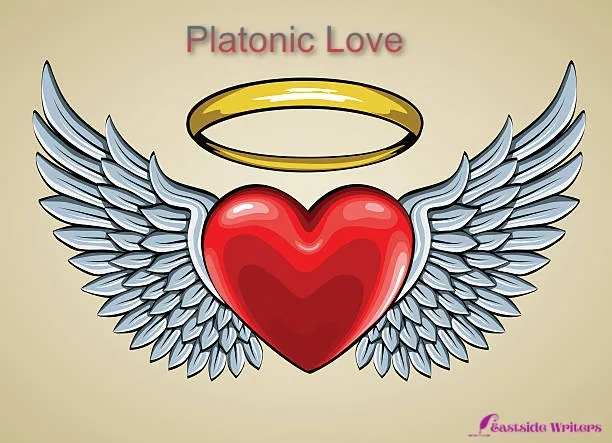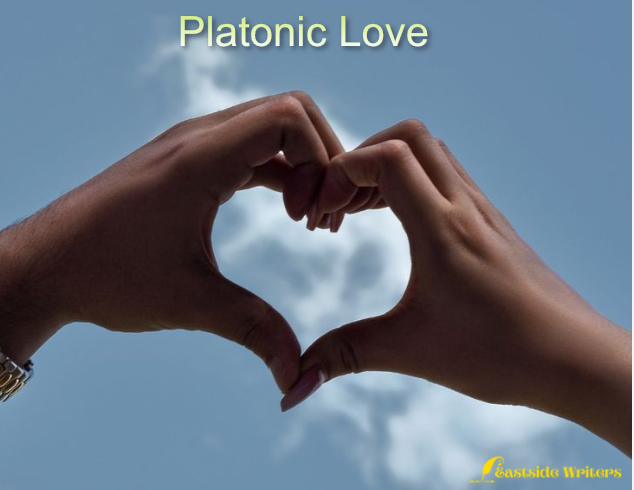Ever felt a connection so deep that it seemed to transcend physical attraction—a love that wasn’t romantic but still felt destined? This unique connection is known as platonic love, a concept that dates back to ancient Greece and still holds significant meaning in modern relationships. Although platonic love may feel mysterious, understanding it can offer profound insights into the nature of human connections and how we relate to others beyond the confines of romance. Let’s explore the depth and beauty of platonic love, how it is rooted in spirituality and science, and why it may be the most powerful, supportive relationship you’ll ever experience.
What Exactly Is Platonic Love?
To understand the concept of platonic love, it helps to look back to its origins with Plato, an ancient Greek philosopher. The term platonic love originates from Plato’s philosophical texts, particularly The Symposium. In it, Plato describes a transcendent, non-sexual form of love rooted in admiration for another person’s intellect, character, and values. Unlike romantic love, which often relies on physical attraction and passion, platonic love is defined by a spiritual and intellectual connection. It’s often described as the “purest form of love” because it is based on a mutual respect and appreciation that surpasses physical desires.
In modern society, platonic relationships or platonic friendships are common and cherished. People experiencing platonic love share deep bonds, loyalty, and trust without the emotional complexity of romance. Think of it as an intense friendship where both individuals genuinely want the best for each other without any romantic expectations. This connection, free from jealousy or possessiveness, allows each person to grow authentically alongside someone who truly understands them.
The Spiritual Side of Platonic Love
Platonic love is often described as a “soul connection,” and for good reason. In spirituality, this connection is sometimes called a soulmate bond or a twin flame—though not necessarily romantic. Many believe that platonic love goes beyond the physical realm, touching on deeper, spiritual dimensions. For example, those who believe in reincarnation see platonic soulmates as individuals who have shared past lives, returning to one another for mutual growth, healing, and life lessons.
Spiritual traditions often describe platonic soulmates as people who feel “meant” for each other, acting as mirrors that reveal each other’s strengths and weaknesses. This soul-level relationship can feel predestined or “meant to be,” as though both individuals are part of each other’s spiritual journey. They are often attracted to each other’s kindness, authenticity, and wisdom, creating a love that’s almost beyond description.

Is Platonic Love Destined, or Do We Have a Choice?
This leads to one of the most frequently asked questions about platonic love: Is it destined, or is it a choice? Platonic relationships, especially those that feel like soul connections, may seem like a twist of fate, as if the universe guided two people to meet. There’s a sense of synchronicity, a feeling that life wouldn’t be the same without this person. Some would call it “destiny,” as these connections often enter our lives precisely when we need them.
However, choice plays a critical role in maintaining platonic love. Just like any other relationship, it requires mutual effort, understanding, and support to thrive. People in platonic relationships actively choose to invest in one another’s lives, showing up for each other with empathy, encouragement, and kindness. This willingness to nurture the connection is what makes platonic love enduring and life-changing.
Scientific Evidence Supporting Platonic Love
You might wonder, is there any scientific evidence that validates the power of platonic love? Interestingly, research shows that human beings are wired to form deep, lasting bonds, whether they are romantic or platonic. Our brains release oxytocin, known as the “love hormone,” whenever we form meaningful connections with others. This hormone fosters trust, loyalty, and calm, crucial for building long-term relationships and reducing stress.
https://eastsidewriters.com/true-love-in-its-purest-form-is-a-never-ending-bond-of-friendship/Studies reveal that close friendships, such as those seen in platonic relationships, have profound effects on mental health. According to the Harvard Study of Adult Development, people with strong, supportive friendships experience better mental health, lower levels of stress, and even increased longevity. The study also found that platonic friendships provide a stable source of support, helping to reduce the risk of depression and anxiety.
The social buffering hypothesis suggests that close friends, especially those in platonic relationships, offer emotional support that helps us cope with life’s stressors. Having someone who genuinely listens, understands, and cares about us makes us feel safer and more resilient, contributing to our overall mental well-being.
What Metaphysics Says About Platonic Love
Beyond scientific evidence, metaphysics offers a fascinating perspective on platonic love. Metaphysical philosophy explores questions about existence, consciousness, and reality beyond the physical world, viewing love as an energetic force that connects people on a soul level. According to metaphysics, all humans are energetically connected, and platonic love represents a harmonious alignment of energies.
Resonance and Vibrational Frequency in Platonic Love
One prominent concept in metaphysics is resonance, the idea that like attracts like. When two people share similar values, interests, and mindsets, their energies resonate, creating a strong bond that feels almost magnetic. In this way, platonic love can be seen as the result of two people meeting at a similar vibrational frequency, where they naturally “click” with one another.
This perspective also connects with the Law of Attraction, a concept in metaphysics that suggests we attract people into our lives based on our own energy levels. By focusing on self-awareness and authenticity, we’re more likely to attract genuine connections, which can manifest as platonic love. The quality of these connections often reflects the personal growth we’ve achieved, making them valuable for spiritual evolution.
Why Platonic Love Is Unique and Essential
Platonic love is different from other forms of love in a few important ways, which is what makes it so unique and essential in our lives.
1. Pure Affection Without Expectation
One of the defining qualities of platonic love is its purity. Unlike romantic relationships, which can sometimes be influenced by physical attraction or social expectations, platonic relationships are driven purely by a desire to connect with the other person’s true self. This purity allows individuals to show up as their authentic selves, without the pressure to impress or conform to romantic ideals.
2. Lifelong Bonds
Platonic love often leads to lifelong friendships. The absence of romantic complications allows these relationships to grow in a stable, dependable way, making them a safe haven where both individuals can feel supported. Studies have shown that people with close, non-romantic friends experience greater happiness and life satisfaction over the years, suggesting that these relationships offer emotional stability and resilience.
3. Growth and Self-Discovery
In platonic relationships, both individuals often act as mirrors for one another, revealing each other’s strengths, weaknesses, and untapped potential. This type of love offers the opportunity for profound self-discovery and personal growth, as each person learns more about themselves through the reflections and support of their friend.
Why Platonic Love Often Comes with a Generation Gap or Age Difference
An interesting and often overlooked aspect of platonic love is the common presence of an age gap or even a generation gap in such relationships. In many cases, people find themselves forming strong, non-romantic connections with individuals who are significantly older or younger. While romantic relationships with an age difference may face scrutiny, platonic relationships with a generation gap are generally celebrated for the wisdom, growth, and unique perspectives they bring.
Learning and Growth Across Generations
One of the reasons that platonic love often thrives between different age groups is the opportunity for learning and growth. When two people with an age gap connect, they bring a variety of life experiences, perspectives, and knowledge to the relationship. This is especially valuable in platonic friendships, where mutual respect and admiration form the foundation of the bond. An older friend might share life wisdom, while a younger friend brings fresh ideas and perspectives, making the relationship enriching for both.
This exchange of knowledge and support is a defining feature of platonic love. In a way, the generation gap within such friendships helps both individuals see life from a new perspective, allowing them to grow beyond the confines of their own generational mindset. For example, a friendship between a young adult and a retired mentor might allow the younger person to gain insight into life’s challenges, while the older friend finds joy in experiencing life through the eyes of a different generation.
Emotional Support Without Generational Bias
Platonic relationships with an age gap often provide an emotionally safe space free from generational biases. Unlike friendships within the same age group, where competition or social pressures might subtly exist, an intergenerational friendship is typically grounded in a mutual desire to offer emotional support and understanding. In these friendships, individuals feel free to be themselves, as they are less influenced by the typical concerns that come with same-age friendships, such as career competition or social expectations.
Such connections rooted in non-romantic love often become essential support systems, allowing people to connect in a way that feels uniquely liberating. The age gap itself can even enhance the platonic bond, as both parties feel appreciated not for their similarities but for their unique differences and complementary strengths.
Examples of Age-Gap Platonic Love in History
Historical examples also demonstrate the value of platonic friendships across generations. Helen Keller and Anne Sullivan, as discussed above, shared an age-gap platonic love where the older Sullivan guided Keller with immense patience and dedication. Similarly, the mentorship bond between Maya Angelou and Oprah Winfrey illustrates how platonic love with a generation gap can leave a lasting impact on both individuals, enriching each other’s lives with wisdom, experience, and empathy.
In modern times, these non-romantic connections across generations continue to demonstrate that platonic love is not bound by age. This type of love, grounded in mutual respect, admiration, and a willingness to learn, is one of the purest forms of human connection. It allows each individual to see life from a broader perspective, reminding us that friendship and love can transcend time, age, and even generations.
The Role of Choice in Nurturing Platonic Love
Although platonic love may feel destined, it still requires choice and commitment to thrive. Here are a few ways that choice plays a role in nurturing this unique bond:
- Building Trust and Vulnerability
Platonic love grows through trust. Each person must choose to be open and vulnerable, sharing their thoughts and feelings without fear of judgment. - Choosing to Show Up
Like any other relationship, platonic love requires presence. Choosing to show up, be present, and offer genuine support is what sustains the relationship over time. - Cultivating Empathy and Understanding
Empathy and understanding are critical in any relationship, but especially in platonic love. Choosing to empathize with each other’s experiences and viewpoints creates a foundation of mutual respect and compassion. - Supporting Growth and Independence
Unlike romantic relationships, where co-dependency can sometimes develop, platonic love allows both individuals to grow independently. In a strong platonic bond, each person supports the other’s growth without trying to hold them back or limit their potential.
Ways to Cultivate Platonic Love in Your Life
If you’re looking to cultivate meaningful platonic connections, here are some steps that can help you build deep, lasting friendships based on love and mutual respect:
- Be Your Authentic Self
The foundation of platonic love is authenticity. By being true to yourself, you allow others to connect with you on a genuine level. - Listen Actively and Show Empathy
Active listening and empathy are key to building trust. Showing that you genuinely care about the other person’s thoughts and feelings strengthens the bond between you. - Spend Quality Time Together
Like any relationship, platonic love thrives on shared experiences. Make time for each other and create positive memories that will strengthen your connection. - Be Supportive Without Expectations
One of the most valuable aspects of platonic love is that it doesn’t come with strings attached. Be there for each other unconditionally, supporting each other’s well-being without expecting anything in return. - Communicate Openly and Honestly
Open communication fosters trust and understanding. Being honest about your needs and feelings ensures that both of you can grow together in the relationship.
Some Interesting Case Studies
Platonic Love Between Historical Icons – Helen Keller and Anne Sullivan
One of the most profound real-world examples of platonic love can be seen in the relationship between Helen Keller and Anne Sullivan. Helen Keller, who lost her sight and hearing as a young child, faced a world of silence and darkness. Her teacher, Anne Sullivan, devoted her life to helping Keller communicate, understand, and engage with the world around her. Despite the fact that there was no romantic element to their bond, the connection between Keller and Sullivan was intensely deep, transforming Keller’s life and allowing her to reach heights that seemed impossible.
Their platonic relationship was characterized by unwavering mutual respect and empathy. Sullivan became Keller’s lifelong friend and mentor, guiding her through various challenges with patience, dedication, and affection. The bond they shared was essential in shaping Keller’s success as an author, lecturer, and advocate for people with disabilities.
This platonic connection has often been celebrated as a relationship based on pure love, compassion, and the belief in each other’s potential. It illustrates how non-romantic love can be just as powerful, impacting lives and leaving an enduring legacy that speaks to the transformative power of platonic love.

Modern-Day Platonic Friendship – Oprah Winfrey and Gayle King
A modern-day example of platonic love is the long-standing friendship between Oprah Winfrey and Gayle King. Over the years, they have shown the world what true platonic friendship looks like, demonstrating how emotional support and mutual trust can nurture a relationship that’s not romantic yet equally deep.
Despite busy careers, Oprah and Gayle make it a point to be there for each other through life’s highs and lows, often describing each other as “soulmates” in a non-romantic sense. This platonic relationship has become a pillar of stability in both of their lives, providing a consistent source of strength, inspiration, and joy. They openly discuss the importance of their bond and how it has helped them navigate personal and professional challenges.
Their friendship, based on unconditional support, is a strong example of platonic love and shows how this type of connection can enrich lives and foster growth without the complications of romance. Their story resonates with millions who value the power of deep, non-romantic connections as a foundation for lifelong happiness.
Why Platonic Love Matters in Modern Life
In a world that often prioritizes romantic relationships, platonic love reminds us of the importance of diverse connections in our lives. Research shows that close friendships can have significant positive effects on our mental and physical health. The longevity and loyalty found in platonic relationships provide stability, especially during times of stress or change.
As our lives become more complex, the need for platonic love grows. Platonic relationships allow us to form bonds that support our well-being, help us cope with challenges, and offer us an enduring sense of companionship and joy. Embracing platonic love opens us to connections that go beyond romance, adding richness and depth to our lives.
Conclusion
Platonic love may be the most beautiful, transformative connection you’ll ever experience. It offers the chance to form a profound bond based on trust, admiration, and mutual respect, all while allowing you to grow freely. Whether you view it as a destined meeting of souls or a conscious choice to nurture a deep friendship, platonic love adds immeasurable value to life. Cherish these connections, nurture them, and experience the unique magic of platonic love—a love that transcends romantic ideals and touches the essence of who we truly are.
Disclaimer:
The author’s views are his or her own. The facts and opinions in the article have been taken from various articles and commentaries available in the online media. Eastside Writers nor the writer takes any responsibility or obligation for them.
Note: Contact our Writers at www.eastsidewriters.com for writing Blogs/Articles on any niche. We have experts in various domains from Technology to Finance. Spirituality to Lifestyle and Entertainment.






